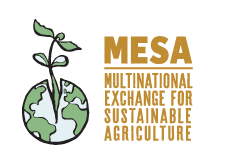GROWING FOOD, LEADERSHIP, AND SOCIAL JUSTICE
By Marianne Landzettel | View Original Posting
Published by Oregon Tilth, In Good Tilth Magazine, Fall 2018
Most days, you’ll find Issack Mlomo on his 25-acre farm in the Njombe region of Tanzania where he grows potatoes, corn and beans. Because he works alone, Mlomo can cultivate only about two acres on the spread. His mother, meanwhile, manages a flock of 200-300 chickens — broilers and laying hens — on the rest of the property. She taught her son to minimize input costs by demonstrating how it’s more efficient to keep fewer birds with room to roam than to increase their number to the point that would require expensive antibiotics.
Hungry for more knowledge about sustainable agriculture, Mlomo heeded the advice of an NGO who introduced him to an international exchange program run by the Berkeley, California-based Multinational Exchange for Sustainable Agriculture (MESA). This is how, last June, he found himself on his lunch break, between fieldwork and his afternoon classes, at the Rodale Institute in eastern Pennsylvania. Rodale is one of about 250 farms and organizations that host MESA’s international exchange program.
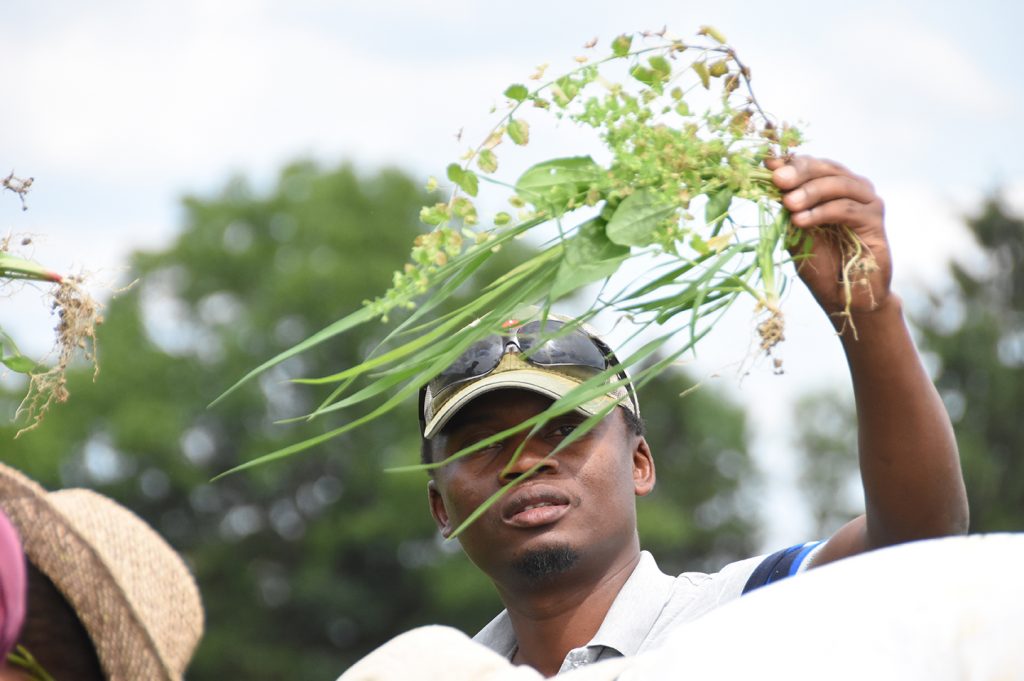
MESA connects the dots
MESA has taken a unique approach to creating a more resilient, more just food system and food sovereignty by building up a loose and flexible global network, connecting farmers, students, NGOs, businesses, scientists and universities. The international exchange program is one part of this effort and has been running since 1997. The MESA online platform works like a matchmaking site: Students and farmers interested in an exchange can see and compare the offers of potential host farms — most of them are U.S.-based, but MESA has organized exchanges to other countries, too, including in Europe and South America.
Farmers willing to host can see online who might be a good match for their operation.
The cooperation between Rodale and MESA is tried and tested; Mlomo is the fifth exchange student farmer. While we were talking, Lynda Prim, Rodale’s program director in charge of training, joined us. After MESA sent a short list of applicants, Prim and her colleagues conducted in-depth interviews via Skype.
“At Rodale, all our trainees have to be highly motivated, prepared to work long hours and ready to give back to the community,” she said. “We want to educate future leaders — people who will aim to train others and facilitate change.”

How it works
The interviews also help establish that an applicant has sufficient agricultural experience and knowledge of English to fully benefit from the exchange. MESA facilitates annual exchanges by sponsoring J-1 training visas for carefully screened global exchange “Stewards” fur up to one full year of training and cultural exchange with U.S. Host counterparts.
Mlomo got his visa with a slight delay and missed the first few weeks of training. And even though Prim had planned every step of the journey from Tanzania to the U.S., the last leg of the trip from JFK to Kutztown (the small Pennsylvania town near the Rodale spread) turned into a nightmare of elusive bus terminals, missed calls and being ripped of by a cab driver. But despite a five-hour delay, the other trainees stayed up to welcome Mlomo with a home-cooked meal.
By now, just two months into his training, Mlomo said he’d already learned a lot — including driving a tractor, which he particularly enjoys, maybe because he knows he would not be able to afford one back home. Growing plants from seed in the greenhouse, preparing seedbeds and transplanting, composting and preparing the CSA veg boxes were among the tasks the trainees accomplished. To Mlomo, the work was simultaneously familiar and new. Potatoes are the same everywhere, he said, but his experience at Rodale means that he will work differently once he returns to Tanzania: from manually shaking the plants to getting rid of pests, to leaving more space between the individual rows to have better access for weeding and using plastic sheeting to suppress weeds. And composting has been a revelation: Who knew that one can use every scrap of vegetable matter available, including leaves?
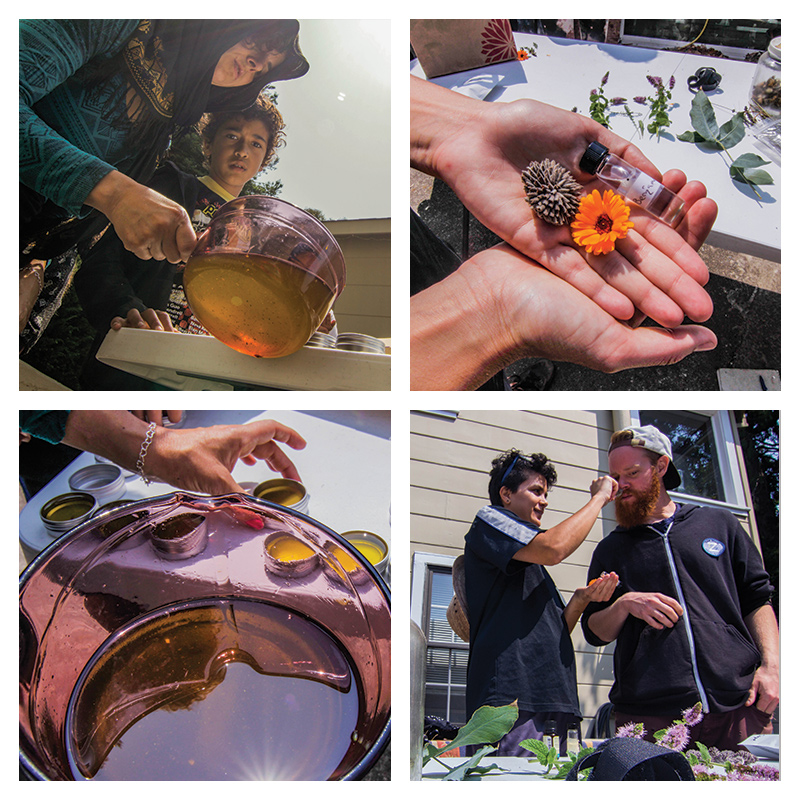
After his return, Mlomo will invest in netting to protect crops, and he will add peas, onions and garlic to the rotation and possibly even red beets. He loves their taste and thought he might be able to convince his customers to at least try them; zucchini and squashes, though, could prove to be a taste experience too extreme. And he found out it is easy to add value to one’s product: Customers pay more for your potatoes when they are nice and clean because you took the trouble to wash them, he told me.
Prim spends a lot of time teaching one-on-one and listening to her students.
“It is a constant conversation: What do you want to do? How can it be done? Where could you get what you need for your project?” she said.
Mlomo would love to have a hoop house on his farm to start seeding earlier. Under Prim’s tutelage, the group will build one this summer. Prim will also help Mlomo check the availability of materials in Tanzania and find alternative solutions if something can’t be sourced or is too expensive.
“The trainees have really bonded from day one,” she said. In her experience, relationships and friendships remain long after the course has finished. Former trainees keep in touch. Help, advice and a sympathetic ear are just a Skype call away.
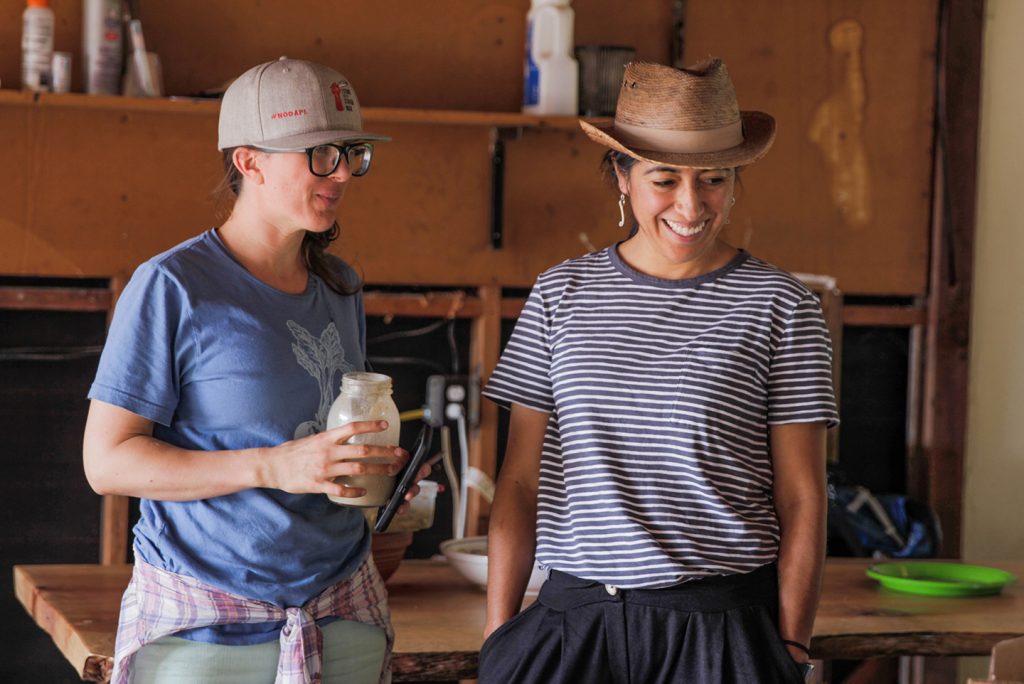
MESA’s work in the Bay Area
As MESA’s international network grew, so did their local partnerships, MESA staff started looking at problems closer to home in the Bay Area, where many families struggle to afford healthy and nutritious food, young people who want to farm lack training and access to land, and food sovereignty is a distant goal. Why not use the growing MESA network to start a project for the local community? Hence, the Bay Area Farmer Training (BAFT) was born. In 2016, MESA Agroecology Educators Ana Galvis and Paul Rogé spearheaded the development of the three-month course curriculum. Classes and workshops are held one evening a week, while Saturdays are reserved for practical training and farm visits.
MESA leases four acres on a farm in El Sobrante, California. To get a certificate, participants attend classes, write a project proposal and complete a number of online assignments and complete the online training course, which is a learning tool and information source open to everyone in the MESA network.
But BAFT is about more than learning how to do companion planting and double digging.
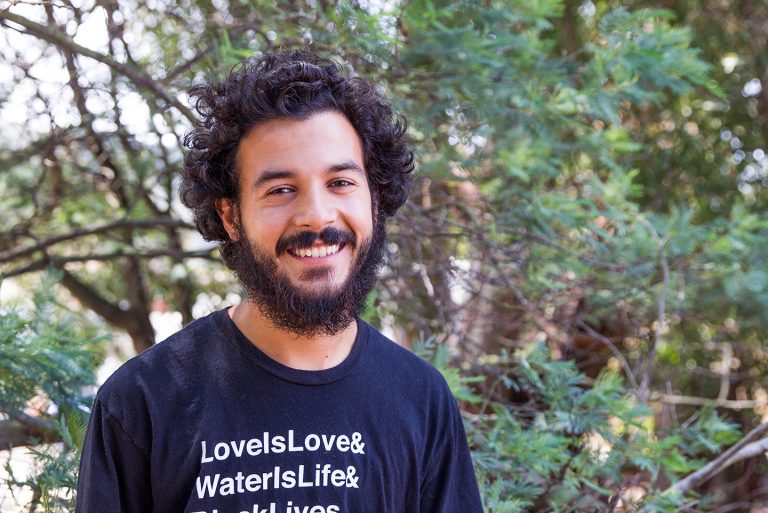
More than just farming
“Social values are just as important — recognizing your ancestry and the foods that are connected with it, the cultural value that was placed on certain foods in your community,” said Rogé. “And it’s about humanistic values, about care, compassion and fairness.”
Eventually, BAFT should be self-sustaining with alumni teaching the next cohort. With that in mind, MESA recruited two alumni educators to assist in running this year’s course. But in July, just a few weeks in, a number of events led to a perfect storm and a crisis. The trainer had to take extended sick leave, the alumni educators were unable to commit as much time as anticipated, participants became increasingly frustrated by the organization of the course and some racially and culturally offensive guest speaker comments.
“The good thing is that no one walked away,” said Rogé. “Instead, the group held MESA to account by saying: ‘Fix this.’”
With over 30 students, this year’s course was the largest MESA has run so far. Trainees come from a number of different ethnicities, with varied backgrounds, levels of education and needs.
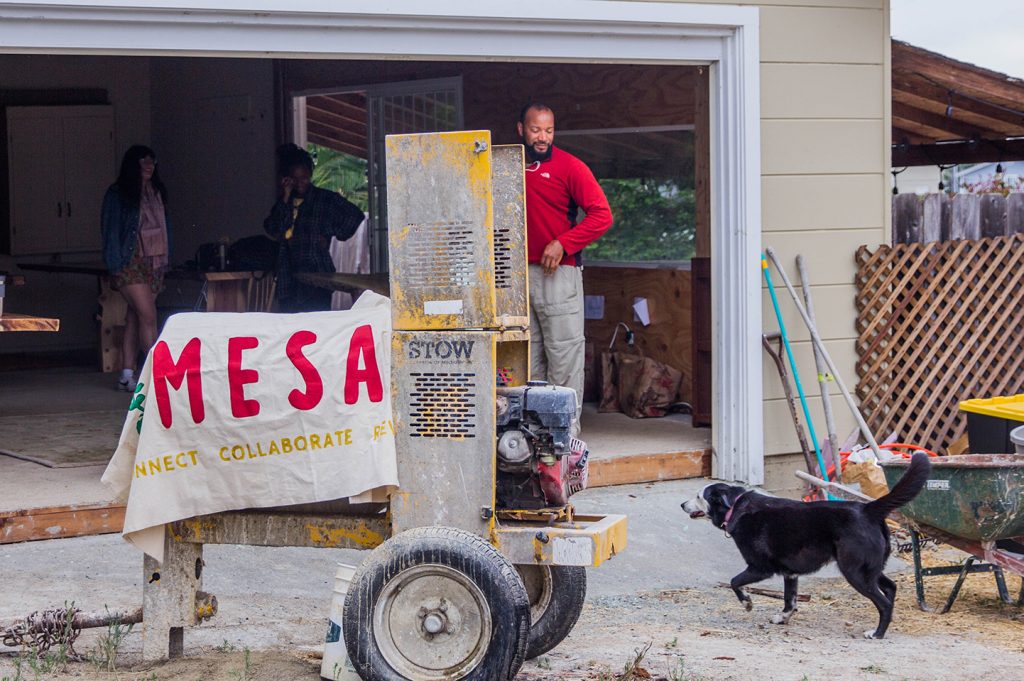
According to Rogé, under those circumstances “it really needed the consistent and reliable presence of one trainer-leader who knows every student and can facilitate and mediate.” He considers the July crisis a valuable lesson that will change how next year’s course is set up and run. And starting this fall, two pilot projects will create additional opportunities: Six alumni have formed a grower cooperative and, with a MESA-subsidized lease, will farm a two-acre incubator space.
Right now they are working out what to grow: food for themselves and their families, vegetables for sale and income generation, or medicinal herbs. A small grant scheme will give other alumni the chance to realize a project — from starting a CSA scheme to renting a venue for running a workshop.
Peter Varas, another BAFT alumni, is now a MESA alumni educator. He came to California from Nashua, Mass., where he grew up in a rough environment. Varas knows about food and cultural heritage: His mother is from Puerto Rico and her rice and beans are part of every meal. His father is from Chile and loves meat. But for Varas, fast food and meals from convenience stores became a staple while he worked two jobs to get himself through community college. He now does field trials for a UC Berkeley urban agroecology project. When we talked in the middle of August, he was one of the educators at an urban youth summer camp in East Oakland. With the help of music by eco hip-hop artist DJ Cavem, he gets even 12-to-14-year-olds thinking about food, health and food justice. The BAFT was a stepping stone for much of what Varas does now and wants to do in the future. And Rogé makes another important point: BAFT is partly funded by the USDA’s Beginning Farmers and Ranchers scheme, and that is a huge step: Because social justice issues are an integral part of the course, they have become a recognized and established topic in mainstream farmer training.
Photos: Miguel Astudillo
